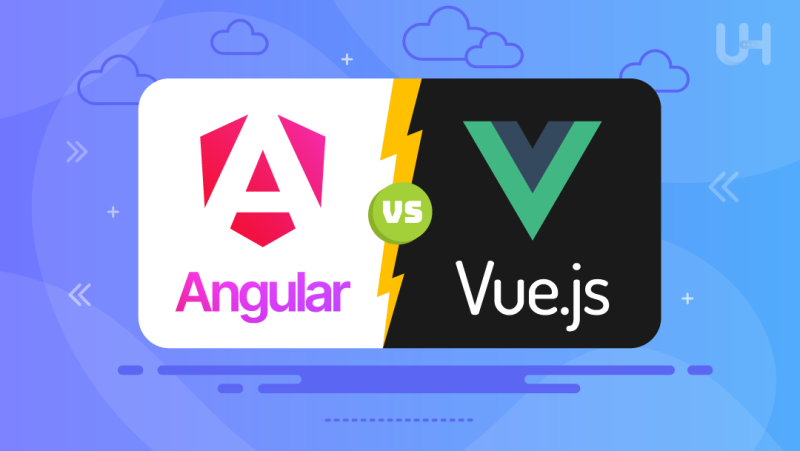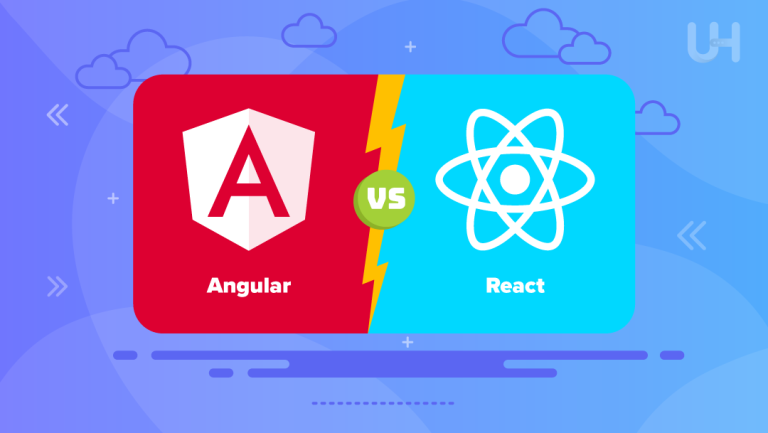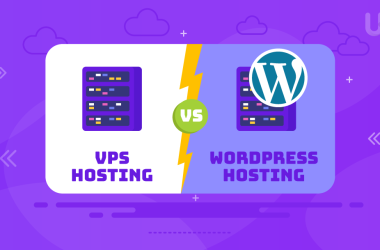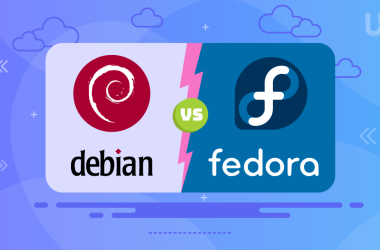JavaScript frameworks revolutionized the approach that developers used to build modern web applications. They provided powerful tools that had been lacking to streamline developments, unravel complexities, and better handle feature-rich applications with scalability. Today, two of the most well-known frameworks, Angular vs Vue, have certain features, advantages, and limitations. Google has supported Angular and is widely trusted when dealing with big scopes, while Vue attracted a lot of love from developers because of its simplicity, ease of use, and flexibility.
In this article, we will explore some key differences between Angular vs Vue that can help you decide which fits your development needs. We’ll break down the key features, pros, and cons of each, then dive into the most appropriate use cases for these frameworks. You should have a better idea by the end of which one to choose for your next project.
What is Angular?
Angular is an open-source web application framework developed and maintained by Google. It first appeared in 2010 under the name AngularJS, but a thorough rewrite of the framework christened Angular tool upon releasing version 2 in 2016. Angular is written in TypeScript, a superset of the JavaScript framework, and is intended for building scalable and high-performance apps. Its framework is known for its strong architecture for creating big and powerful applications at an enterprise level.
At its core, Angular is an MVC architectural pattern-based framework that separates the application logic from data management and the user interface. This modularity in development makes Angular applications highly maintainable and scalable. Its strong dependency injection system and powerful CLI tools further streamline development.
Key Features
- Component-Based Architecture: Applications in Angular are developed using components that enable both reusable and modular code.
- Two-Way Data Binding: This manages real-time data integrity between model and view, which can speed up development.
- Dependency Injection: It will help manage the dependencies of components much better and reduce repetitive codes.
- RxJS for Reactive Programming: It supports asynchronous programming using observables and allows Angular to handle complex data streams.
- CLI: The Angular Command Line Interface allows the developer to create, develop, scaffold, and maintain Angular applications with ease.
Pros
- Well-organized Architecture: The organized structure of Angular is suitable for large-scale application development.
- Full-Featured Toolset: Everything a developer needs to create applications from a built-in router to form handling and an HTTP client.
- Strong Community Support: Since Angular is a Google-backed project, it enjoys sizeable community support for its frequent updates.
- TypeScript Integration: With static typing, TypeScript improves the quality of code by allowing faster debugging.
- Great For Large Projects: Angular has a strong architecture pattern fit for complex and enterprise-level applications.
Cons
- Steep Learning Curve: The architecture of Angular is elaborative; hence may be overwhelming for the fresher.
- Heavy Framework: Angular applications are naturally huge, which could affect initial loading.
- Boilerplate code: Angular requires a lot of boilerplate code; this might reduce development speed in smaller applications.
What is Vue?
Vue is the Progressive JavaScript Framework by a former Google engineer named Evan You in 2014. Being different from Angular, Vue was designed to be incrementally adoptable. Since it builds off of HTML and CSS, placing Vue into an existing project is pretty simple and can be used for building SPAs. Vue focuses on simplicity and ease of integration with high performance, therefore attracting much attention from developers for small to medium-sized projects.
Like Angular, it embraces a component-based architecture but without its steep learning curve. It is highly flexible, allowing developers to pick and choose the parts they require for their projects and develop with them without being forced into a full-featured framework. Vue.js is also known to be efficient in its rendering system and lightweight, making it really fit for performance-based applications.
Key Features
- Reactive Data Binding: Vue automatically updates the view when the underlying data changes, similar to Angular’s two-way data binding.
- Virtual DOM: It uses a virtual DOM to optimize rendering for performance gains.
- Component-based Architecture: Similar to Angular, Vue applications also have their basis in reusable components.
- Flexible Integration: Either by gradually using the Vue library within an already ongoing project or by starting to use Vue as a full-fledged framework for creating SPAs.
- Vue CLI: It is used to provide a minimal but powerful set of tools necessary to scaffold and develop Vue applications efficiently.
Pros
- Easy to Learn: Vue is easier for a fresher audience to learn and has a softer learning curve compared to Angular.
- Lightweight: Vue is lightweight and, hence, very efficient, especially for small and middle-level applications.
- Well-documented: Vue is extremely well-documented, making it easy for developers to use.
- Flexible and Incrementally Adoptable: It allows a developer to adopt Vue into any existing project, whether at a very small or very large scale.
- Powerful Community: Vue has a fast-growing committed community and ecosystem, lots of resources, and libraries.
Cons
- Lack of Large-Scale Backing: The support for Vue in terms of big companies is lacking, such as Google’s massive support for Angular, which can be a cause for concern regarding its ability to scale for enterprise-level applications.
- Smaller Ecosystem: While Vue’s ecosystem is on the increase, it is still smaller compared to Angular and boosts the limitation in the number of available third-party tools that it has.
- Large Applications Not Ideal: Vue can become a little more challenging to scale, unlike other more strict frameworks, such as Angular, when working with huge, complex applications.
Discover the Best Hosting for Your Framework
Are you building your next project with Angular or Vue and need powerful hosting to support it? UltaHost’s dedicated server hosting gives you the speed, scalability, and performance your applications deserve.
Vue js vs Angular: Differences
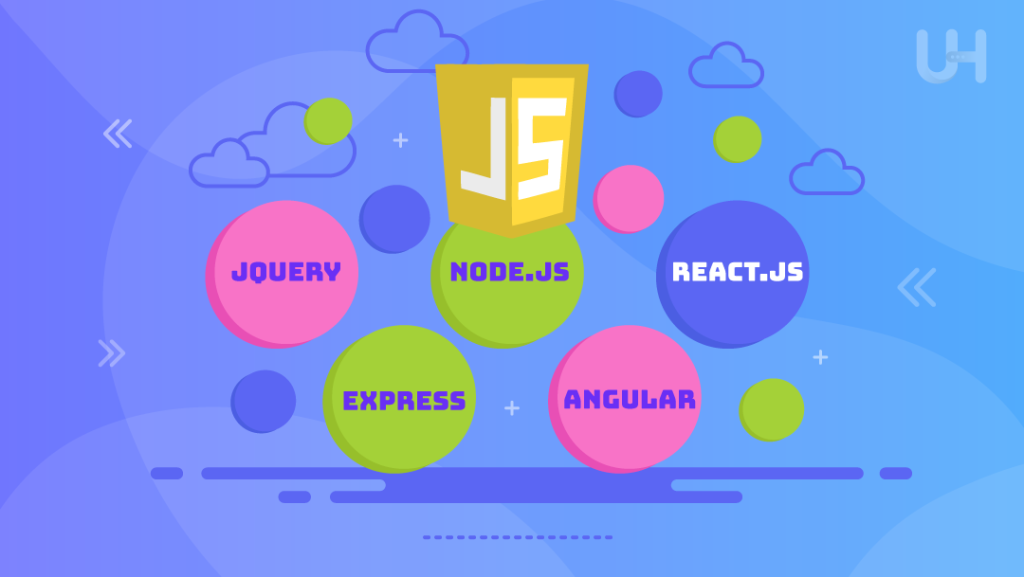
While both are indispensable in their features for web app development, they apply to different kinds of projects and the needs of different developers. Angular is designed for huge, complicated, enterprise-level applications, while Vue will do for simpler, lightweight applications that require flexibility.
| Aspect | Angular | Vue |
| Learning Curve | Steep due to its complexity | Gentle and beginner-friendly |
| Architecture | Full-fledged MVC framework | Lightweight, flexible framework |
| TypeScript Support | Built-in with TypeScript | Optional, but available |
| Performance | Heavy but optimized for large apps | Lightweight, ideal for smaller apps |
| Community and Ecosystem | Strong support, backed by Google | Rapidly growing, community-driven |
| Data Binding | Two-way data binding | One-way data binding by default |
| Size of Applications | Ideal for large apps | Best for small to medium-sized apps |
Vue vs Angular: Use Cases
The choice between Vue and Angular is usually related to your project’s scale, complexity, and exact needs. For projects dealing with really large-scale and enterprise applications with heavy, complex data management, Angular is your go-to. In contrast, Vue does great in projects needing more flexibility and fast rendering.
Angular Use Cases
- Enterprise-Level Applications: Angular is ideal for large-scale applications requiring complex architecture. It works well with enterprise WordPress hosting to manage high-traffic websites and content-heavy platforms.
- Real-time Applications: These are ideal for projects like chat apps, video conferencing tools, or live data dashboards.
- Progressive Web Applications: Angular offers a great opportunity for Progressive Web Applications (PWAs), which is well supported, where the developer builds fast and reliable web apps.
- E-commerce Platforms: Angular is strong and scalable, making it perfectly suitable for eCommerce hosting. It allows large amounts of data and traffic to be efficiently managed in e-commerce web platforms.
Vue Use Cases
- Single-Page Applications: SPAs are best developed with Vue when their user interface should be dynamic and simple.
- Small to Medium Projects: These allow for small to medium-sized projects that need flexibility and rapid development.
- Integration with Existing Projects: Vue can be easily integrated into an existing project, making it suitable for projects where new features are to be added without rewriting the entire project.
- UI Components: This is probably the most common use of Vue in developing special interactive components for websites and applications, and it’s all because it’s really lightweight.
Conclusion
There is no single right answer when choosing between Angular vs Vue. Angular is mostly used in big, complex, or enterprise applications due to its solid structure and rich tooling. In contrast, Vue proves to be the best choice for those pursuing flexibility, ease, and speed—possibly for smaller applications. The choice will thus depend on your project’s scale, complexity, and special needs.
As you explore the strengths of Angular and Vue.js, consider UltaHost’s VPS hosting solutions to provide the dedicated resources and flexibility you need. It ensures optimal performance and scalability for both your Angular and Vue applications.
FAQ
What are the key differences between Angular vs Vue?
Angular is a full-fledged MVC framework suited for large-scale applications, while Vue is a lightweight, flexible framework ideal for small—to medium-sized projects.
Which is easier to learn: Angular or Vue?
Vue is generally easier to learn due to its simplicity and gentle learning curve, making it beginner-friendly compared to Angular’s complexity.
Is Angular better for large-scale applications?
Yes, Angular’s robust architecture and comprehensive toolset make it ideal for building complex, enterprise-level applications.
Can I integrate Vue into an existing project?
Vue is highly flexible and can be easily integrated into existing projects without requiring a complete overhaul.
Does Angular support TypeScript by default?
Yes, Angular is built with TypeScript, providing strong static typing and improved code quality.
Which framework is better for performance, Angular or Vue?
Vue is generally lighter and performs better for smaller applications, while Angular is optimized for larger ones.
What is a good use case for Vue?
Vue is perfect for single-page applications (SPAs) and projects requiring fast rendering and development flexibility.





